Under federal legislation, it is mandatory for commercial motor vehicle drivers and owner-operators to use log devices to stay compliant with the ELD mandate and minimize the possibility of being fined put out of service. However, with so many ELD service providers available, selecting the best electronic logging device can be challenging. This article offers valuable insights on how to choose a reliable logbook, along with a list of major providers and their devices’ ratings.
Do you have any questions? Talk to ELD Advisor: 650-405-3372 or Request Callback
What Is the Best Electronic Logging Device for Trucking Operations?
Choosing the best electronic logbook device for your business requires careful consideration. User ratings and reviews from fellow truckers can provide useful insights into the actual performance and drawbacks of ELD solutions. We have compiled a list of FMCSA-approved providers and their ratings on the Apple App Store and and Google Play to help truckers compare logbook apps. You can click on any rating to view user reviews.
| RANK | ELD PROVIDER | iOS APPSTORE | ANDROID PLAYSTORE |
|---|---|---|---|
| 1 | |||
| 2 | KeepTruckin | ||
| 3 | BigRoad | ||
| 4 | Rand McNally | ||
| 5 | |||
| 6 | |||
| 7 | Transflo | ||
| 8 | PeopleNet | ||
| 9 | Verizon |
Red Flags When Choosing ELD Products
When trying to find the best electronic logging devices, it is essential to be aware of potential red flags. ELD service providers with low ratings and negative reviews should be approached with caution. Apart from relying on reviews from actual users, it is also important to watch for the following red flags:
- Difficulty reaching customer support. A reliable ELD provider should offer accessible and responsive customer support. Try giving the customer service line a call to see how easy it is to get hold of someone. If you’re stuck talking to a machine or have to wait for too long, it might be best to consider a provider with more responsive after-sale services.
- Hardware requirements. Some elog providers manufacture proprietary hardware for drivers to use with their solutions.This can be expensive and limit flexibility. Drivers should be able to use their own smart devices that they are familiar with.
- Lengthy contracts. Some providers require clients to sign long-term contracts (3-5 years), which can limit flexibility and leave businesses stuck with a company that does not meet their expectations. It is always better to have the flexibility to switch plans or companies, especially when it comes to technology. Anything over a year is not recommended.
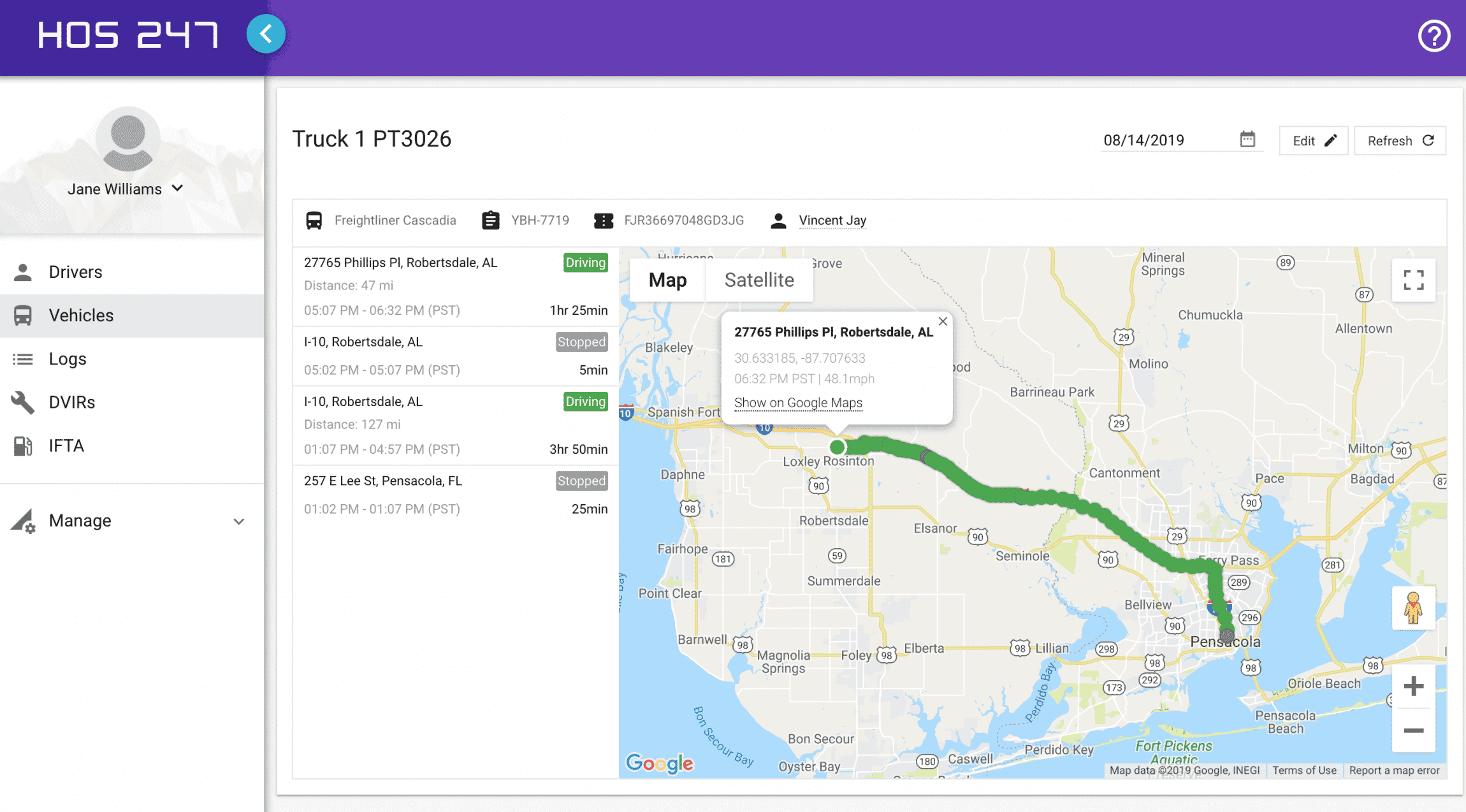
Finding the best electronic logging devices requires a comprehensive understanding of available options and features, as well as a clear understanding of the pain points facing your business. For instance, if you manage a large fleet and you spend valuable time preparing IFTA mileage reports, the best elog system might be one that automates the reports for you, eliminating the need for administrative work. In contrast, owner-operators might prefer a more affordable plan without such extra features.
Additionally, carriers should refer to the Federal Motor Carrier Safety Administration’s list of registered ELDs. If an ELD provider is not on that list, they’re not compliant. However, it is important to know that providers self-register into the list and can be removed after further scrutiny, which is why checking the list regularly is encouraged.
HOS247 Stands for Reliability
Whether looking for ELD logbooks for buses, semi trucks or pickup trucks, finding a dependable ELD service provider is key. At HOS247 our main goal is to provide a reliable service to help truckers stay compliant. The following benefits are the reason drivers and fleet owners consider HOS247 ELD to be amongst the best electronic logging devices:
- Compatibility. The HOS247 app works with Android and iOS tablets and smartphones seamlessly and the hardware can be connected to most vehicles.
- Flexible pricing plans. Whether one truck or 500, we offer flexible pricing plans to accommodate the needs of every size fleet. Monthly and yearly subscription plans can scaled up or down at any time.
- No long-term contracts. We have a no-contract policy because we believe in our solution. Truckers stay with HOS247 due to our reliability and top-rated customer support, so there is no need to lock them in.
- Hassle-free returns. If you choose not to keep the log device for any reason, you can return it within the first two weeks and get your money back, no questions asked.
- Top-rated by drivers, fleet managers, and owner-operators. Because the ELD and app are so easy to use, HOS247 is top-rated on app stores.
- Reliable hardware. HOS247 hardware is easy to install and ready to go in minutes. The device is made of high-quality materials to provide durability and a stable Bluetooth connection.
- Dedicated multilingual support. If there are any questions—either from drivers, fleet managers, or dispatchers—, HOS247 offers efficient technical support seven days a week in Spanish, Polish, Russian, and English.
- Intuitive portal for fleet managers. Fleet managers appreciate the intuitive HOS247 portal that displays all relevant HOS data and other valuable metrics to automate FMCSA compliance, boost efficiency and increase fleet visibility.
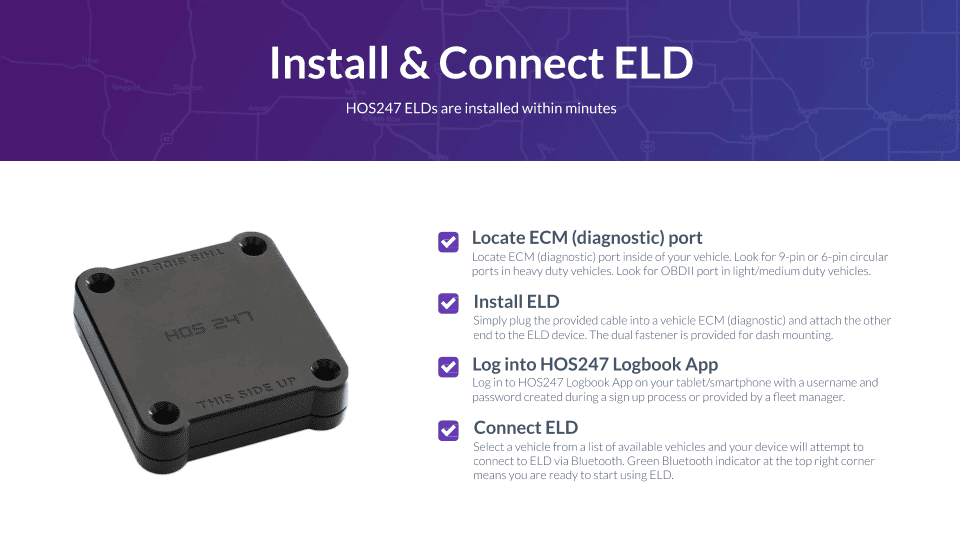
Who Must Comply with the ELD Mandate?
If a commercial vehicle drivers is required to keep records of duty status, they are typically required to comply with the ELD mandate. This includes CMV drivers domiciled in Mexico and Canada. However, the following drivers are exempt:
- Drivers who operate under any of the short-haul exemptions, since they are allowed to continue using timecards.
- Drivers who keep RODS for eight days or less in every 30-day period.
- Drivers of vehicles made before the year 2000.
- Drivers in drive-away-tow-away operations driving the commodity being delivered.
Аrе Drivers of Pickup Trucks Required to Install ELDs?
When determining whether drivers of pickup trucks are required to install ELDs, it is important to consider the gross-vehicle weight rating (GWRR) and the gross combination weight rating (GCWR):
- The GCWR is what the vehicle manufacturer specifies as the maximum weight for a vehicle towing a trailer. It includes the vehicle, passengers, driver, cargo, and attached trailer with any load it is carrying.
- The GVWR is what the vehicle manufacturer specifies as the maximum operating weight of a vehicle—including the vehicle itself with any accessories—and the driver, passengers, and cargo.
The main difference between these ratings is that GCWR includes the weight of any trailer the vehicle is towing with its load.
If the GVWR or GCWR of a pickup truck and its load exceeds 10,001 pounds during transport, it will be classified as a CMV. As such, it needs an ELD.
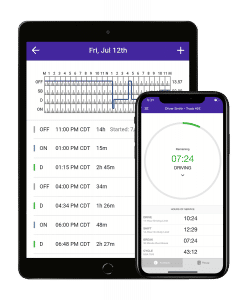
Do Owner-Operators Need to Install ELDs?
ELD requirements for owner-operators are the same as for other carriers, meaning they are subject mandate as long as they conduct commercial operations across state lines unless they meet any of the exemption criteria. Owner-operators should take into account that, to stay FMCSA-compliant, they are required to create two separate user accounts: one for their use as a fleet manager and the other as a driver.
HOS247 Additional Features
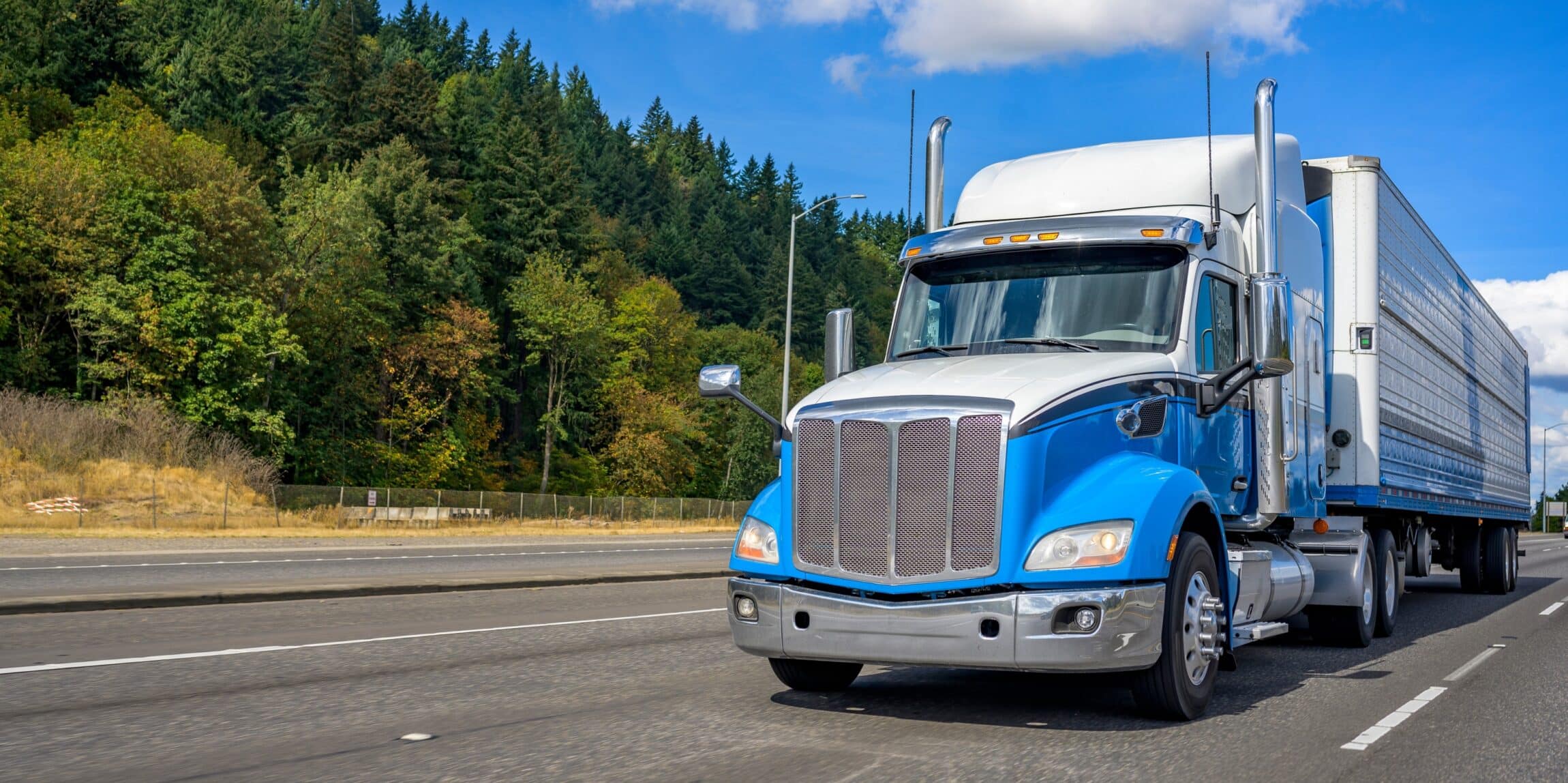
In addition to an ELD for hours-of-service tracking, the following HOS247 features are offered to improve trucking operations:
- IFTA mileage. With automated IFTA mileage calculations, fleet managers save time on doing complex calculations and tracking receipts. HOS247 calculates the distance a driver travels by jurisdiction, reducing the risk of human error.
- GPS tracking. HOS247 fleet managers are provided with a birds-eye-view of their drivers. They can also make sure their drivers are set to arrive at their destination on time, allowing them to share an accurate arrival time with their customers. The result is minimized guesswork and reduced need to perform check-in calls with drivers. Fleet managers can even view telematics such as fault codes and a driver’s speed and driving direction.
- Dispatch. Dispatchers’ job is complicated, involving numerous phone calls and texts to assign loads. A dispatcher has to consider which drivers are available, whether that driver has the right equipment for a load, and how many hours of service they’ve logged already before assigning them a new one. The result is improved customer service and more efficient operations.

I’ve co-founded, built and managed several transportation-related businesses. Now, I’m a founder and CEO of HOS247 – an AI Transportation Platform for trucking companies, freight brokers and other logistics operations. We are transitioning old-style operations to technology-advanced logistics entities and help them to grow their businesses. ELDs (electronic logging devices), fleet tracking and management 2.0 combined with AI-powered dispatch tools.











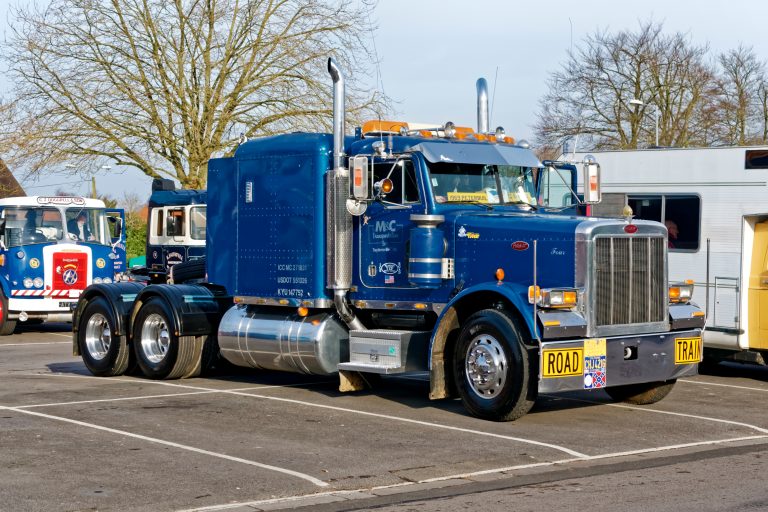
Since the ELD mandate was published by FMCSA, it has created quite a stir among carrier companies and truckers all over the U.S.A. While many carriers are frantically looking for a reliable DOT compliant ELD, others are still deciding whether

Vehicle Log Book App for Android and iOS Electronic logging devices are a legal requirement for commercial drivers. They are also useful to streamline operations, stay on top of fleet maintenance, and save carriers time and money. An essential part

GPS fleet tracking has become an essential tool in the trucking business as it helps improve security and operational efficiency significantly. Commercial truck GPS trackers allow motor carriers to monitor and manage vehicles in real-time using advanced telematics technology. Tracking